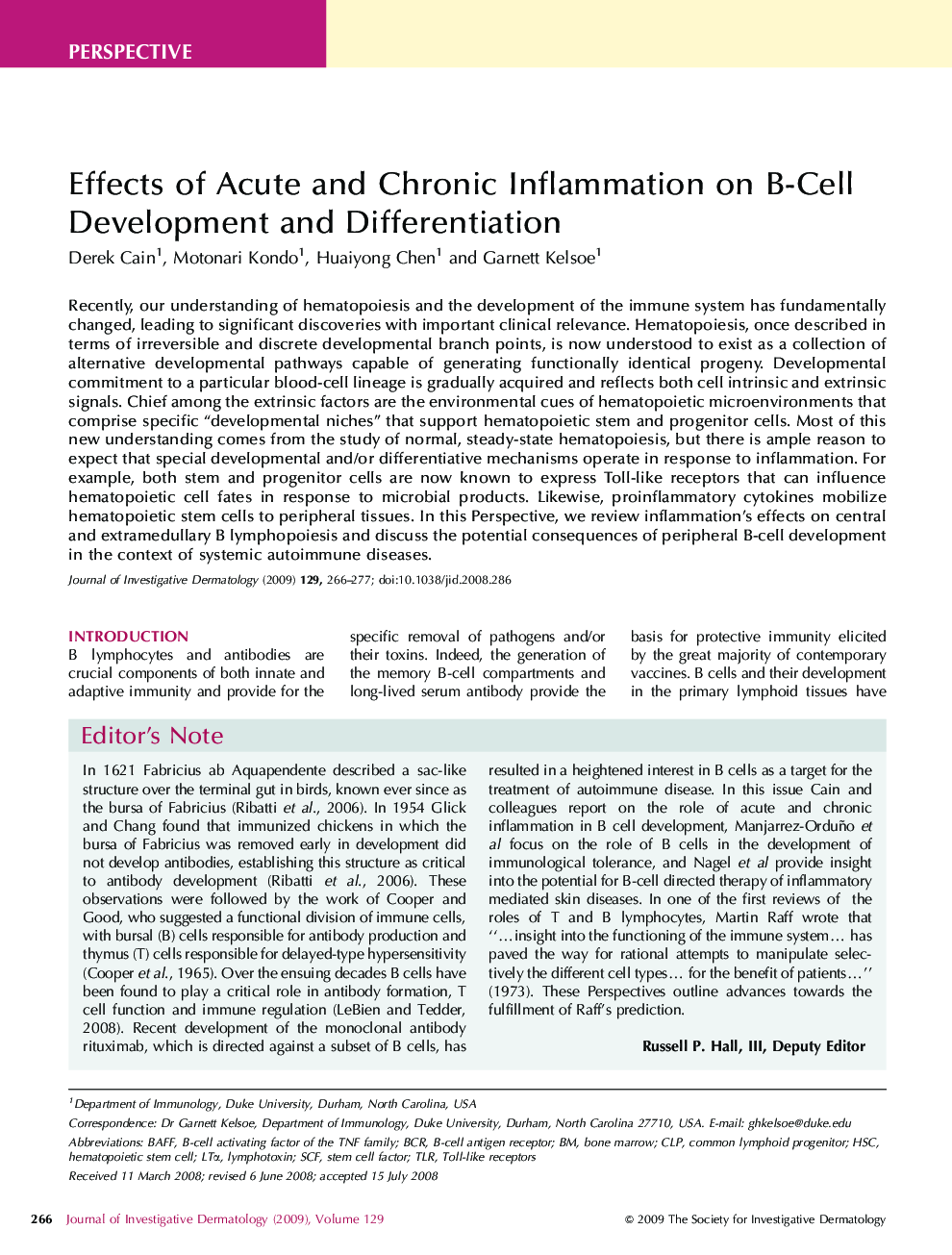| کد مقاله | کد نشریه | سال انتشار | مقاله انگلیسی | نسخه تمام متن |
|---|---|---|---|---|
| 3217243 | 1203596 | 2009 | 12 صفحه PDF | دانلود رایگان |

Recently, our understanding of hematopoiesis and the development of the immune system has fundamentally changed, leading to significant discoveries with important clinical relevance. Hematopoiesis, once described in terms of irreversible and discrete developmental branch points, is now understood to exist as a collection of alternative developmental pathways capable of generating functionally identical progeny. Developmental commitment to a particular blood-cell lineage is gradually acquired and reflects both cell intrinsic and extrinsic signals. Chief among the extrinsic factors are the environmental cues of hematopoietic microenvironments that comprise specific “developmental niches” that support hematopoietic stem and progenitor cells. Most of this new understanding comes from the study of normal, steady-state hematopoiesis, but there is ample reason to expect that special developmental and/or differentiative mechanisms operate in response to inflammation. For example, both stem and progenitor cells are now known to express Toll-like receptors that can influence hematopoietic cell fates in response to microbial products. Likewise, proinflammatory cytokines mobilize hematopoietic stem cells to peripheral tissues. In this Perspective, we review inflammation's effects on central and extramedullary B lymphopoiesis and discuss the potential consequences of peripheral B-cell development in the context of systemic autoimmune diseases.
Journal: Journal of Investigative Dermatology - Volume 129, Issue 2, February 2009, Pages 266–277